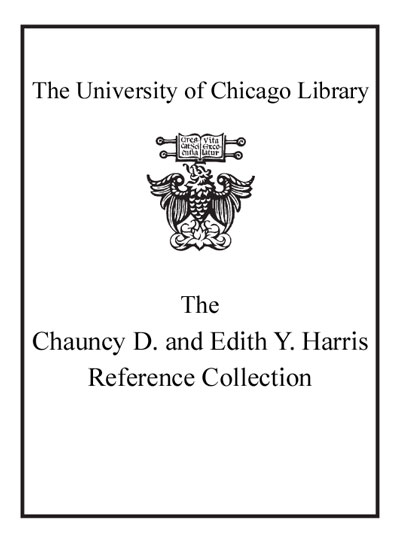Review by Choice Review
The authors offer a good one-stop guide to non-English expressions that occur in English contexts, mostly from Latin but also from French, German, Hebrew, Spanish, and several other languages. Every entry is translated literally, word for word, followed by an idiomatic definition, and often also by a sentence that uses the word or phrase illustratively (although these are sometimes less than informative--e.g., "The a baculo argument was unsuccessful"). This book amalgamates two earlier, unpublished efforts, one tentatively titled A Dictionary of Latin Expressions for Lawyers and Men of Letters, the other An English Dictionary of Foreign Expressions for Lawyers, Scholars, Journalists, Etc., whose titles give a good idea of the scope of the present publication. Of the thousands of words and phrases here, a few have migrated so thoroughly into English (e.g., "drama," "marijuana," "matador," "dogma," "toga") that they scarcely require inclusion. For the most part, however, the phrases (e.g. droit d'aubaine, in jure, non remota causa sed proxima spectatur) are likely to need explication for most readers who lack knowledge of foreign languages. General and academic collections. W. Miller; Florida Atlantic University
Copyright American Library Association, used with permission.
Review by Booklist Review
Many words and phrases from other languages find their way into English. This is especially true in professional jargons. Literary, historical, and religious writings also contain expressions from other languages. Readers who are unfamiliar with these words need a source for translations. This dictionary is a compilation of two separate projects undertaken by the authors: a dictionary of Latin terms for lawyers and a more general dictionary of terms from other languages for readers. It contains words and phrases from more than 20 languages, with an emphasis on Latin legal terms. There are abbreviations, single words, and phrases pertaining to history, literature, the arts, and, to a lesser degree, the sciences. Each alphabetical entry contains the term, its designation (noun, adjective, etc.), language, and translation. The translation includes a word-by-word explication as well as a finished version. Many entries also include sentences or phrases that illustrate usage. Although the word-by-word explication of phrases is a unique feature, it is not necessarily useful. Unless a reader is familiar with the grammar of the language in question, the very literal translation involved here will not make sense. Making the leap from this crude rendering to the polished version is not easy because there is no explanation of the grammar rules. Some of the examples provided indicate less than thorough knowledge of idiomatic English. The French phrase au naturel is defined as "in the natural state. Nude. Naked." It is also defined as "done, performed, accomplished, etc. in a natural manner." The example for this definition is "James is a very pleasant man, and one of his assets is his au naturel behavior." Some of the transliterations and translations of Hebrew and Yiddish words are not accurate. Tzittzit, the knotted fringes on Jewish prayer shawls, are entered as zizith. A cross-reference from the first spelling would make the word easier to find. The Yiddish word yahrzeit is correctly translated as the anniversary of a death, but the added statement that it marks the end of the official mourning period is misleading because the date is observed annually. The terms schlemiel and schlimazel have almost identical definitions, although there are subtle differences. Schlemiel is clumsy, inept, and unlucky, while schlimazel is perpetually out of luck. There are other dictionaries of foreign terms with more useful features. The Oxford Dictionary of Foreign Words and Phrases [RBB Ap 1 98] has 8,000 words and phrases from more than 40 languages. It includes pronunciation and has an index by language, which helps users locate specific expressions. The Harper Dictionary of Foreign Terms (3d ed., Harper, 1987) contains 15,000 expressions from more than 50 languages, with an English-language index. Either of these is better for general readers. The World Dictionary is most suitable for users who need translations of legal terms that they cannot find in Black's Law Dictionary.
From Booklist, Copyright (c) American Library Association. Used with permission.
Review by Library Journal Review
Stone follows up his Latin for the Illiterati (LJ 12/96) with this new dictionary, structured around the subtitle's three areas: medicine, law, and religion. Translations are brief and literal. The dictionary concludes with some of the same information given in Latin for the Illiterati as well as newer miscellaneous information, including Latin selections (with English translations) from the Roman Catholic liturgy. The dictionary ends with an English-Latin index. The major drawback is the arrangement by topicÄthe three different topic areas must be checked if the user doesn't know whether the word or phrase is medical, legal, or religious (there is no Latin index). On the positive side, this dictionary contains many terms not found in other recent Latin-English dictionaries, such as James Morwood's A Dictionary of Latin Words and Phrases (Oxford Univ., 1998). Adeleye's World Dictionary of Foreign Expressions provides translations from over 20 languages, making it an excellent resource for general users. Each definition indicates part of speech, language of origin, plural forms, and literal translation (including the literal translation of each word in a phrase). Also included are lengthier, connotative definitions, examples of use in sentences, and, when appropriate, cross references to other terms. Adeleye's dictionary is recommended for all public and academic libraries; Stone's is for libraries needing a more specialized resource.ÄCynthia A. Johnson, Barnard Coll. Lib., New York (c) Copyright 2010. Library Journals LLC, a wholly owned subsidiary of Media Source, Inc. No redistribution permitted.
(c) Copyright Library Journals LLC, a wholly owned subsidiary of Media Source, Inc. No redistribution permitted.
Review by Choice Review
Review by Booklist Review
Review by Library Journal Review

